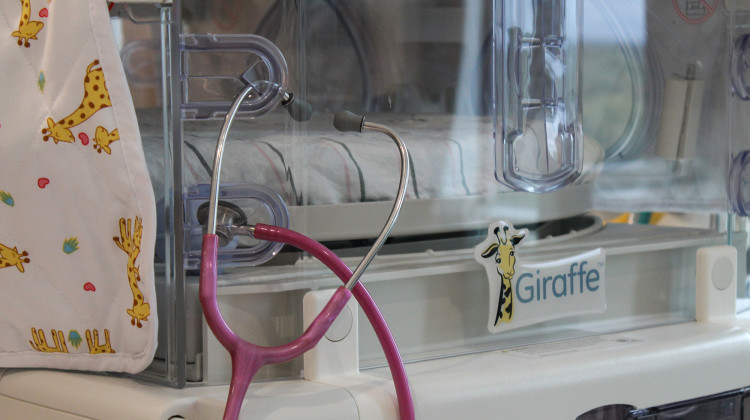
In addition to addressing access needs, there are other benefits to having graduate medical education programs in rural hospitals.
Lauren Chapman / IPB NewsIndiana’s health workforce shortage is especially hard on the rural areas of the state. The scarcity of physician training opportunities in these areas may be contributing to the absence of rural doctors.
Graduate medical education is the training that physicians complete after they have graduated medical school. Doctors can focus on different types of medicine like family, emergency, or obstetrics and gynecology.
Dr. Cliff Knight is the assistant dean of graduate medical education at the Marian University College of Osteopathic Medicine. He said Indiana is behind the rest of the country when it comes to the number of available training opportunities.
“We know that you are more likely to practice near where you do your residency training,” Knight said. “If we're losing a lot of our graduates from our medical schools, they may not come back to Indiana to practice.”
Knight said less than 2 percent of residencies are in rural areas.
Join the conversation and sign up for the Indiana Two-Way. Text "Indiana" to 765-275-1120. Your comments and questions in response to our weekly text help us find the answers you need on statewide issues.
Compared to Indiana, Knight said neighboring states have two to three times the training capacity.
“By definition, we are a net exporter,” Knight said. “We train more physicians in Indiana in medical school than we can even keep in the state to train in residency.”
Knight said Indiana needs about 300 more family physicians. If nothing changes, he said that shortage could get worse.
In addition to addressing access needs, there are other benefits to having graduate medical education programs in rural hospitals.
“There have been studies that show that hospitals that have residents in training in those hospitals have better mortality outcomes than hospitals that are not teaching hospitals,” Knight said.
Knight said just by creating a learning environment, residency programs change the culture of the clinical environment in ways that benefit the patients, providers and hospital.
Abigail is our health reporter. Contact them at aruhman@wboi.org.
 DONATE
DONATE






 Support WFYI. We can't do it without you.
Support WFYI. We can't do it without you.